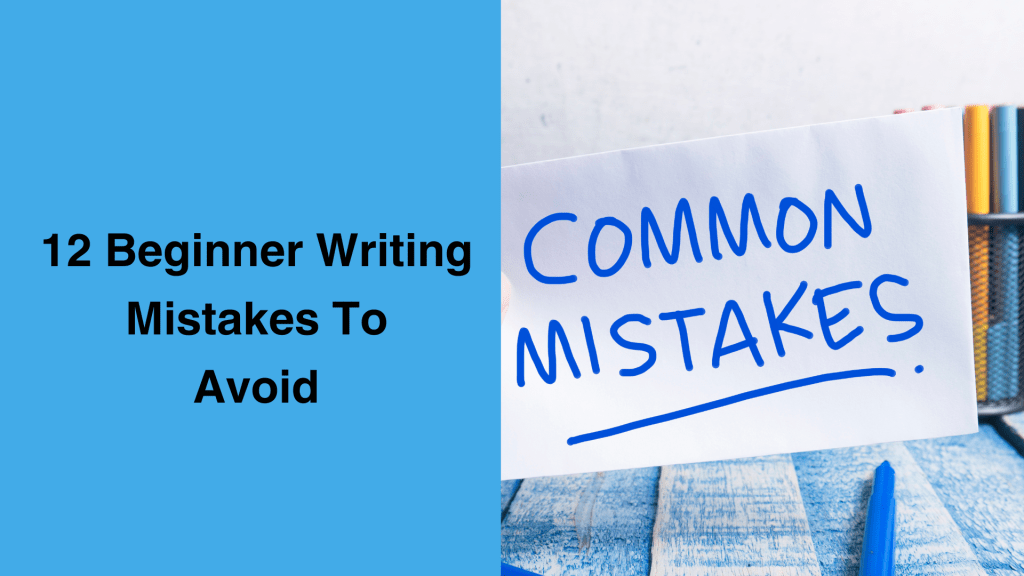- Blog
What is SEO Content Writing? A Beginner’s Guide

Have you ever wondered why some blogs effortlessly rank at the top of Google while others remain buried in obscurity? If you’re struggling to make your content visible, you’re not alone. With millions of articles published daily, standing out has become a significant challenge for content creators.
This is where SEO content writing comes into play—a strategic approach that marries compelling writing with optimization techniques to boost your visibility.
This is where SEO content writing becomes a game-changer. Whether you’re a blogger, a business owner, or someone trying to build an online presence, knowing the SEO writing basics can open doors to visibility and success.
This beginner’s guide to SEO will break down the core concepts, giving you practical steps to make your content search-engine-friendly while keeping readers engaged. Mastering SEO is not just for marketers; it’s for anyone looking to grow in the digital space.
Challenges You Might Face Without SEO Knowledge
- Struggling to attract traffic despite great content.
- Poor engagement rates due to low visibility.
- Difficulty competing in a saturated digital market.
By the end of this blog, you’ll have a clear understanding of what SEO content writing is, why it’s vital, and how to start implementing SEO techniques today.
What is SEO Content Writing?
SEO content writing combines the art of writing with the science of search engine optimization. It’s not just about sprinkling keywords into your text—it’s about creating content that resonates with readers while aligning with search engine algorithms.
Defining SEO Content Writing
At its core, SEO content writing is about creating valuable, relevant, and well-structured content designed to rank higher in search engine results. Search engines like Google prioritize content that satisfies user intent, meaning your content needs to address what your audience is searching for.
Key Elements of SEO Content Writing:
- Keyword Optimization: Identifying and naturally integrating terms your audience uses when searching.
- User Intent Alignment: Answering questions, solving problems, or providing value.
- Content Quality: High-quality, unique, and error-free content.
- Technical SEO Aspects: Ensuring your page structure, meta tags, and URLs are optimized.
SEO vs. Traditional Content Writing
Traditional content writing focuses solely on storytelling or conveying information. While that’s important, it often lacks the optimization required to rank well. SEO content writing blends creativity with strategy, making content not only engaging but also discoverable.
| Aspect | Traditional Writing | SEO Content Writing |
| Focus | Reader engagement | Reader engagement + Search engines |
| Keyword Use | Optional | Essential, but natural integration |
| Structure | Free-flowing | SEO-optimized (headers, subheadings) |
| Visibility | Relies on direct sharing | Ranks on search engines organically |
How SEO Content Writing Benefits You

- Increases Website Traffic: Properly optimized content attracts organic visitors.
- Boosts Credibility: Content that ranks well is often seen as authoritative.
- Enhances Reader Engagement: Aligning with search intent ensures you’re answering their queries.
By mastering SEO writing basics, you can create content that stands out amidst the competition.
Pro Tip: Use Internal Links Strategically
Internal links connect pages within your website, improving SEO and navigation. For more tips, check out our guide: 10 Proven Techniques to Write SEO-Optimized Content That Ranks.
Beginner’s guide to seo why content writing is important
If you’ve ever wondered why some blogs dominate search results while others go unnoticed, the answer lies in SEO. The importance of SEO in content writing cannot be overstated—it’s the bridge between your content and your target audience.
How SEO Drives Visibility
Search engines like Google use algorithms to rank content based on relevance, quality, and user intent. SEO techniques help ensure your content checks all these boxes, making it easier for your audience to find you.
Key Benefits of SEO in Content Writing:
- Attracts Organic Traffic: Proper optimization ensures your content shows up in search results, eliminating the need for costly ads.
- Improves Audience Engagement: By answering specific queries, SEO aligns your content with the needs of your audience.
- Builds Brand Authority: Consistently ranking high establishes your brand as a trusted source of information.
Connection Between SEO Writing Basics and Engagement
When content is optimized for search engines, it naturally leads to better audience engagement. Why? Because SEO helps you create content that speaks directly to the needs and interests of your audience. This increases time spent on your site, reduces bounce rates, and improves overall user experience.
Better Conversions Through SEO
Beyond engagement, effective SEO content writing can drive tangible results, such as:
- Increased Leads: Optimized content targeting buyer intent keywords can drive inquiries or sales.
- Higher Retention: Quality content keeps readers returning, building trust over time.
- Improved ROI: Organic traffic provides long-term benefits without recurring costs.
Stay Ahead of the Curve
Staying updated with trends is crucial as SEO evolves. Explore more in our resource, SEO Content Writing Trends to Watch in 2024.
SEO Writing Basics for Beginners

Before diving into advanced strategies, mastering the fundamentals of SEO content writing is essential. Here’s a breakdown of the SEO writing basics that will set you on the path to success:
1. Keyword Research
Keywords are the backbone of SEO. They represent what users type into search engines to find content.
- Why It Matters: Targeting the right keywords aligns your content with user queries.
- How to Do It: Use tools like Google Keyword Planner, Ahrefs, or Ubersuggest to identify high-traffic, low-competition keywords.
2. On-Page Optimization
On-page elements ensure your content is structured for both readers and search engines.
- Title Tags and Meta Descriptions: Craft compelling titles and summaries that include primary keywords.
- Headers (H1, H2, H3): Organize content with keyword-rich headings to improve readability.
- Alt Text for Images: Use descriptive text to help search engines understand visuals.
3. Content Quality
Search engines reward high-quality, unique, and engaging content.
- Tips for Quality Content:
- Write for your audience first, search engines second.
- Use simple, conversational language.
- Ensure content answers specific questions or solves problems.
4. Internal Linking
Strategically linking to other pages on your website improves both SEO and user experience.
- Benefits:
- Keeps visitors on your site longer.
- Distributes link equity to other pages.
- Helps search engines understand your site structure.
Learn how to do this effectively in our guide: How to Use Internal Linking to Boost SEO in Your Content.
5. User Experience (UX)
Content formatting, readability, and mobile-friendliness play a significant role in SEO success.
- Focus Areas:
- Use short paragraphs and bullet points.
- Optimize for mobile devices.
- Enhance readability with white space and visuals.
By mastering these basics, you’ll create content that not only ranks well but also engages and retains readers.
How to Get Started with SEO Content Writing

Starting as a beginner can feel overwhelming, but with a step-by-step plan, the process becomes manageable. Here’s how to begin your SEO content writing journey:
Step 1: Research Keywords Relevant to Your Niche
Identify keywords that align with your audience’s needs. Look for those with a good balance of search volume and competition.
Step 2: Create a Content Plan Based on Search Intent
Not all searches are equal. Understand whether the intent behind a keyword is informational, navigational, or transactional, and tailor your content accordingly.
Step 3: Optimize Headlines, Meta Descriptions, and Subheadings
Ensure your primary keywords are included naturally in titles and descriptions. Subheadings should also be keyword-rich and informative.
Step 4: Write Engaging and Valuable Content
Focus on providing value. Solve problems, answer questions, or entertain—whatever your audience is looking for.
Step 5: Use Internal and External Links
- Internal links boost site navigation and SEO.
- External links to credible sources enhance the trustworthiness of your content.
Step 6: Monitor Performance and Adjust Strategies
Use tools like Google Analytics to track your content’s performance. Update and refine older content based on performance data.
Use an SEO Checklist for Success
Stay organized with an SEO content writing checklist to ensure every post is optimized effectively. For more, check out our guide: SEO Content Writing Checklist: Everything You Need to Succeed.
By following these steps, beginners can start creating SEO-friendly content that delivers results.
The Role of a Professional SEO Writer
As your content needs grow, you may find yourself struggling to manage the demands of keyword research, optimization, and consistent quality. This is where hiring a professional SEO writer can make a significant difference.
Why Consider a Professional SEO Writer?
A professional SEO writer is well-versed in both search engine algorithms and crafting engaging content. They bring expertise, efficiency, and creativity to your content strategy, helping your business achieve its digital marketing goals.
Key Benefits of Hiring an SEO Writer:
- Keyword Mastery:
Professionals know how to identify and integrate the best keywords to boost visibility. They understand search intent and can craft content that aligns with what users are looking for. - Content That Ranks:
Writing for SEO goes beyond stuffing keywords into text. Professional writers craft high-quality, valuable content that resonates with readers while satisfying search engine criteria. - Time-Saving:
For businesses, time is money. An SEO writer allows you to focus on other core aspects of your business while they handle the complexities of SEO optimization. - Scalable Content Strategies:
Professional professional SEO writer for hire can help businesses scale their efforts, ensuring a consistent output of optimized content across platforms.
Whether you’re a small business or a large enterprise, investing in an experienced SEO writer can elevate your content game and improve ROI.
Common Mistakes Beginners Should Avoid

Starting with SEO content writing can be tricky, and many beginners make errors that hinder their progress. Here are some common pitfalls and how to avoid them:
1. Keyword Stuffing
In an attempt to rank higher, some beginners overuse keywords, which can make content unreadable and even lead to penalties from search engines.
Solution: Use keywords naturally. Focus on context rather than repetition.2. Writing for Search Engines, Not Readers
Content written solely to satisfy algorithms often lacks engagement and fails to connect with readers.
Solution: Write for humans first. Ensure your content is valuable and enjoyable to read.3. Ignoring Internal Linking
Failing to link to other relevant content on your website can limit SEO potential and reduce reader engagement.
Solution: Strategically place internal links to guide readers to more resources and boost site authority.4. Neglecting Mobile Optimization
With the majority of searches happening on mobile devices, ignoring mobile-friendliness can harm rankings.
Solution: Use responsive design and test your content on various devices to ensure it’s mobile-friendly.5. Overlooking User Experience (UX)
Long paragraphs, poor formatting, or lack of visuals can make your content less appealing.
Solution: Use headers, bullet points, and images to improve readability and keep readers engaged.By avoiding these common mistakes, you’ll create content that’s both user- and search-engine-friendly, paving the way for long-term success.
Staying Ahead: Trends in SEO Content Writing (2024)
SEO is constantly evolving, and staying updated with the latest trends is vital for maintaining a competitive edge. Here are the top trends shaping SEO content writing in 2024:
1. AI in Content Creation and Optimization
AI tools like ChatGPT and Jasper are revolutionizing content creation by assisting with keyword research, content ideas, and even drafting. While AI can boost efficiency, human oversight is essential for authenticity and engagement.
2. Voice Search Optimization
With the rise of smart devices, voice search is becoming increasingly popular. Optimizing content for conversational queries and long-tail keywords is crucial.
3. Topic Clusters and Pillar Content
Search engines are prioritizing content that provides comprehensive coverage of topics. Group related content into clusters and use a central pillar page to link them.
4. E-A-T: Expertise, Authority, Trustworthiness
Google emphasizes content that demonstrates expertise, authority, and trustworthiness. Ensure your content is backed by credible sources and showcases your knowledge in the field.
5. Visual and Interactive Content
Engagement is key. Incorporate videos, infographics, and interactive elements to keep readers engaged and on your site longer.
6. Emphasis on Local SEO
For businesses targeting specific regions, optimizing for local searches with location-based keywords is becoming increasingly important.
Conclusion
SEO content writing isn’t just a skill—it’s a gateway to digital visibility and growth. By understanding the importance of SEO in content writing, mastering the basics, and staying ahead of trends, you can transform your content into a powerful tool for attracting, engaging, and converting your audience.
Ready to take your content strategy to the next level? Explore our SEO content writing services today and start creating content that ranks.FAQs-Frequently Asked Questions
Q1. How Long Should an SEO-Optimized Blog Be?
A: SEO-optimized blogs typically range from 1,500 to 2,500 words. However, the ideal length depends on the topic and user intent. Long-form content tends to rank better as it provides comprehensive information, but always prioritize quality and relevance over word count.
Q2. What Are LSI Keywords, and How Do They Help in SEO Writing?
A: LSI (Latent Semantic Indexing) keywords are terms related to your primary keyword. They help search engines understand the context of your content. For example, if your primary keyword is “beginner’s guide to SEO,” related terms like “SEO tools,” “content ranking,” and “search engine optimization” can enhance your content’s relevance.
Q3. How Often Should I Update My SEO Content?
A: Regular updates are essential to keep your content relevant and maintain rankings. Review your content every 6-12 months to ensure it aligns with current SEO trends, incorporates updated data, and addresses evolving user needs.
Q4. What Tools Can Help Beginners with SEO Content Writing?
A: Several tools simplify SEO for beginners:
- Google Keyword Planner: For keyword research.
- Yoast SEO (WordPress plugin): Helps optimize on-page SEO.
- Grammarly: Enhances readability and grammar.
- Ahrefs or SEMrush: Advanced tools for tracking rankings and finding opportunities.
Q5. Can SEO Content Writing Be Effective Without a Blog?
A: Yes! SEO content isn’t limited to blogs. Product descriptions, FAQs, landing pages, and even video scripts can benefit from SEO strategies. The principles of keyword integration and optimization apply across various types of content.

We are an expert ghostwriting team that takes your imagination, adds a thing or two, and turns it into a successful book.
